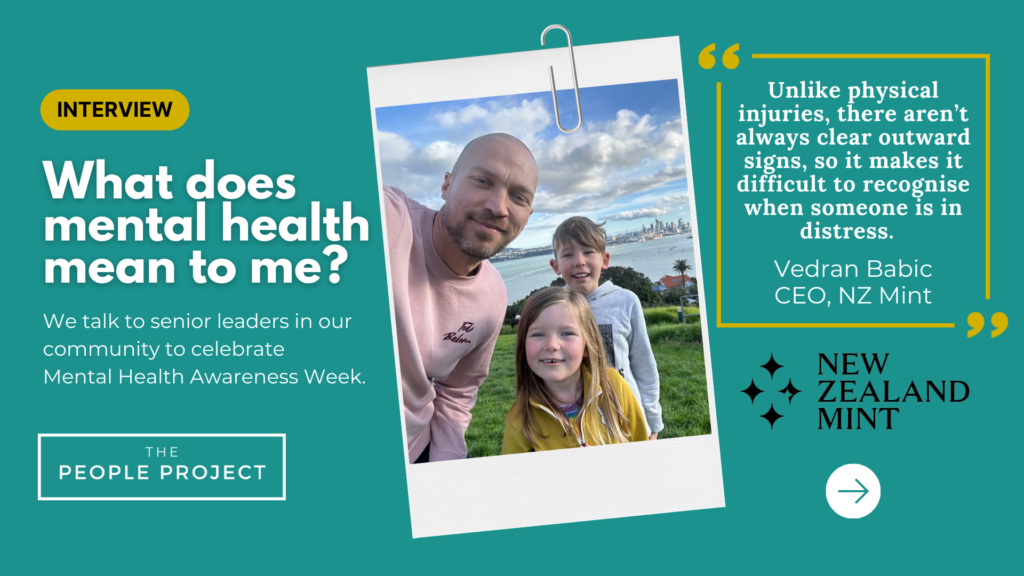Vedran Babic has been part of our TPP community for 4.5 years since taking over the CEO position at MMC Ltd, (now Apex). We continued to work with him when he moved into the CEO role at New Zealand Mint | Agoro, a company with two distinct brands: New Zealand Mint, a bullion trading business, and Agoro, a precious metals collectibles business. Vedran’s ethos has always been ‘people first’ so we were excited that he was keen to share his insights on this very important topic!
Let’s hear from Vedran:
- What does mental health mean to you, and why do you think it’s important to talk about it openly?
I think of mental health as the inner equivalent of physical health. It influences how we manage emotions, stress, and daily challenges. Talking about it openly is important because it creates opportunities for help and support to take place. It’s the first and vital step in ensuring we put ourselves in a position to thrive.
- How do you prioritise your mental health in your daily life?
Being comfortable with having open conversations about my struggles, large and small, with those closest to me. Also, sticking to a handful of rituals which have taken me a few years to integrate into my daily and weekly routine (with many failed attempts along the way), which I believe have a positive impact on my mental wellbeing. The most important ones for me have been getting a good amount of sleep consistently, 20 minute daily meditation and exercise. I also think getting outside of the four walls of our office or house and being closer to nature does not get enough credit for its positive impact on how we think, feel and act.
- What are some of the biggest challenges you face when addressing mental health in the workplace, and how do you overcome them?
Addressing mental health in a workplace can be especially challenging because it’s often invisible. Unlike physical injuries, there aren’t always clear outward signs, so it makes it difficult to recognise when someone is in distress. Especially as people can go out of their way to cover it up as well. And even when you may suspect something could be going in, you do have to tread carefully when addressing potential concerns and respecting personal boundaries while also ensuring your people feel supported. That’s a very tricky balance to strike. Creating a safe environment where your people can feel safe to discuss such issues is a must. This is easier said than done as it requires building trust and ensuring that conversations about mental health are free from stigma or repercussions. Something that requires ongoing effort and takes time.
- What advice would you give to other CEOs or leaders who are hesitant to address mental health in their organisations?
In your business, everything starts and ends with your people. By not addressing mental health, you’re not helping your people or your business.
#MHAW #peopleandculture #community



